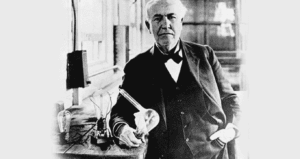
![]() n a world filled with uncertainties, finding solace and purpose can be a profound journey. Many individuals turn to spirituality as a means to explore the deeper mysteries of life and connect with something greater than themselves. In this blog, we delve into the power of faith, its impact on nurturing your spiritual path, and the profound existence of God. Spirituality offers a guiding light that ignites the power of faith within us. It is a profound journey of self-discovery, connection, and belief in something greater than ourselves. At the core of spirituality lies the existence of God, a divine presence that transcends human understanding. In this article, we will delve into the captivating realm of spirituality, exploring the transformative power of faith and how it nurtures our spiritual path. Join us as we embark on a mesmerizing expedition that illuminates the essence of spirituality and the profound impact it can have on our lives.
n a world filled with uncertainties, finding solace and purpose can be a profound journey. Many individuals turn to spirituality as a means to explore the deeper mysteries of life and connect with something greater than themselves. In this blog, we delve into the power of faith, its impact on nurturing your spiritual path, and the profound existence of God. Spirituality offers a guiding light that ignites the power of faith within us. It is a profound journey of self-discovery, connection, and belief in something greater than ourselves. At the core of spirituality lies the existence of God, a divine presence that transcends human understanding. In this article, we will delve into the captivating realm of spirituality, exploring the transformative power of faith and how it nurtures our spiritual path. Join us as we embark on a mesmerizing expedition that illuminates the essence of spirituality and the profound impact it can have on our lives.
Understanding Spirituality
Spirituality is the broad concept of a belief in something beyond the self. It strives to answer questions about the meaning of life, how people are connected to each other, truths about the universe, and other mysteries of human existence.
It offers a worldview that suggests there is more to life than just what people experience on a sensory and physical level. Instead, it suggests that there is something greater that connects all beings to each other and to the universe itself.
It may involve religious traditions centering on the belief in a higher power. It can also involve a holistic belief in an individual connection to others and the world as a whole.
- Exploring Spirituality’s Significance
Spirituality plays a significant role in our lives by providing a sense of purpose, meaning, and connection. It allows us to tap into our inner selves and explore the depths of our existence. One of the key signs of spirituality is the yearning for something beyond the material world, a desire to understand the profound aspects of life. People who are spiritual often find themselves pondering existential questions and seeking answers beyond what science or logic can explain. They recognize the interconnectedness of all beings and strive to live in harmony with themselves, others, and the universe.
- Unveiling Different Types of Spirituality
Spirituality encompasses a wide range of practices and beliefs, offering individuals the freedom to explore and connect with their inner spirituality in unique ways. Some individuals find solace and connection through religious traditions, such as Christianity, Islam, Buddhism, or Hinduism. Others find their spiritual path through alternative practices like meditation, yoga, or energy healing. There is no one-size-fits-all approach to spirituality, and each person’s journey is deeply personal. By understanding the different types of spirituality available, individuals can find a path that resonates with their beliefs, values, and experiences.
- Spirituality vs. Religion: Bridging the Gap
While spirituality and religion are often used interchangeably, they are not the same. Religion typically refers to an organized system of beliefs, practices, and rituals that are shared by a group of people. On the other hand, spirituality is a personal experience and can exist outside the confines of any specific religious institution. Spirituality allows individuals to connect with their inner selves and explore their relationship with the divine or higher power in a way that feels authentic to them. It offers a more flexible and individualized approach to exploring the mysteries of life and seeking meaning and purpose.
Spirituality
- Can be practiced individually
- Doesn’t have to adhere to a specific set of rules
- Often focuses on a personal journey of discovering what is meaningful in life
Religion
- Often practiced in a community
- Usually based on a specific set of rules and customs
- Often focuses on the belief in deities or gods, religious texts, and tradition
Embracing the Existence of God
The existence of God lies at the heart of spirituality. It is a belief that goes beyond scientific evidence or rational explanations. While diverse religious traditions offer various interpretations of God, spirituality transcends religious boundaries, acknowledging the universal presence of a divine force that guides and sustains all of creation. Embracing the existence of God opens doors to profound experiences, divine connection, and a sense of awe and wonder.
Embracing the existence of God is a deeply personal and transformative journey that can profoundly impact one’s life. It involves recognizing and accepting the presence of a higher power and opening oneself up to a deeper connection with the divine.
The existence of God is not limited to any specific religious text or tradition. It is a universal concept that resonates across various faiths, including Islam, Christianity, and Judaism. Let us explore some verses from the Quran, Bible, and Torah that speak to the profound existence of God.
“Allah! There is no deity except Him, the Ever-Living, the Sustainer of existence. Neither drowsiness overtakes Him nor sleep. To Him belongs whatever is in the heavens and whatever is on the earth. Who is it that can intercede with Him except by His permission? He knows what is before them and what will be after them, and they encompass not a thing of His knowledge except for what He wills. His Kursi extends over the heavens and the earth, and their preservation tires Him not. And He is the Most High, the Most Great.”
Quran (Surah Al-Baqarah 2:255):
“In the beginning was the Word, and the Word was with God, and the Word was God. He was in the beginning with God. All things were made through Him, and without Him was not any thing made that was made.”
Bible (John 1:1-3)
Torah (Genesis 1:1-2)
“In the beginning, God created the heavens and the earth. The earth was without form and void, and darkness was over the face of the deep. And the Spirit of God was hovering over the face of the waters.”
These verses from sacred scriptures emphasize the eternal nature of God, the Creator of all things. They affirm that God is the sustainer of existence, the source of all wisdom, and the one who brings order to the universe. They invite individuals to contemplate the vastness and intricacy of creation, recognizing that it is a reflection of a divine design.
By incorporating these verses into the discussion on embracing the existence of God, we recognize the profound wisdom and guidance that can be found within religious texts. They serve as reminders of our spiritual connection to a higher power and provide insights into the nature of God’s existence and the divine purpose behind creation.
Nurturing Your Spiritual Path
Nurturing your spiritual path is a lifelong journey of self-discovery and growth. It involves cultivating a deep connection with your inner self, others, and the divine. One of the key aspects of nurturing your spiritual path is developing a sense of mindfulness and self-awareness. This can be achieved through practices like meditation, reflection, and spending time in nature.
Another important element of nurturing your spiritual path is exploring different spiritual practices and traditions. There are various types of spirituality, ranging from breathwork and meditation to prayer and service to the community. It’s essential to find practices that resonate with you and align with your beliefs and values. By engaging in these practices regularly, you create a sacred space for introspection, connection, and growth.
Additionally, nurturing your spiritual path involves seeking knowledge and wisdom. This can be done through reading spiritual texts, attending workshops or retreats, and learning from spiritual teachers or mentors. It’s important to approach this process with an open mind and a willingness to explore different perspectives. By expanding your understanding of spirituality, you deepen your connection to something greater than yourself and gain valuable insights into the nature of existence.
Spirituality’s Impact on Well-being
The impact of spirituality on well-being is profound and far-reaching. Numerous studies have shown that individuals who embrace spirituality experience enhanced mental, emotional, and physical well-being. Spirituality provides a sense of purpose and meaning, which can promote greater resilience in the face of life’s challenges. It offers a source of comfort, hope, and inspiration during difficult times, providing a sense of inner strength and peace.
Spirituality also fosters positive relationships and a sense of community. By connecting with others who share similar beliefs and values, individuals experience a deeper sense of belonging and support. This sense of community can be found within religious institutions, spiritual groups, or even through online communities. These connections provide a network of support, encouragement, and shared experiences that contribute to overall well-being.
Furthermore, spirituality has been linked to improved mental health outcomes. Practices like meditation and mindfulness have been shown to reduce stress, anxiety, and depression. They promote a state of inner calm and clarity, allowing individuals to navigate life’s challenges with greater ease. The spiritual path encourages self-care, self-compassion, and the cultivation of positive emotions, all of which contribute to improved mental and emotional well-being.
How to Practice Spirituality
Now the question is, how to Practice Spirituality?
Practicing spirituality is a deeply personal journey, and there is no one-size-fits-all approach. However, there are some fundamental principles and practices that can guide you on your path. Here are a few suggestions to help you cultivate spirituality in your daily life:
- Cultivate mindfulness: Set aside time for meditation, reflection, or simply being present in the moment. Practice awareness of your thoughts, emotions, and sensations without judgment.
- Connect with nature: Spend time in nature, whether it’s taking walks in the park, hiking in the mountains, or sitting by the ocean. Nature has a way of grounding us and reminding us of the interconnectedness of all living beings.
- Engage in self-reflection: Take time to journal, contemplate, or engage in practices that allow you to explore your inner world. Ask yourself meaningful questions about your values, purpose, and the deeper meaning of life.
- Explore spiritual practices: Experiment with different spiritual practices and traditions that resonate with you. This could include prayer, meditation, yoga, chanting, or engaging in acts of service.
- Seek guidance and community: Connect with spiritual teachers, mentors, or like-minded individuals who can support and guide you on your spiritual journey. Attend workshops, retreats or join spiritual communities to foster connection and growth.
Remember, the practice of spirituality is a continuous process. It’s about finding what works for you and integrating it into your daily life. Embrace the journey of self-discovery, and allow spirituality to enrich your existence and bring about a deeper sense of fulfillment and purpose.
Potential Pitfalls of Spiritual Practice
While spirituality can be transformative and deeply fulfilling, it’s important to be aware of potential pitfalls that can arise on the spiritual path. Here are a few common challenges to watch out for:
- Spiritual bypassing: This occurs when individuals use spirituality as a means to avoid or suppress uncomfortable emotions or unresolved issues. It’s important to address and work through emotional challenges rather than using spirituality as an escape.
- Dogmatism and rigid beliefs: Holding onto rigid beliefs and dismissing other perspectives can hinder spiritual growth. Maintain an open mind and be willing to explore different ideas and philosophies.
- Ego attachment: The ego can easily infiltrate spiritual practice, leading to feelings of superiority, judgment, or competition. Cultivate humility and let go of the need to be right or better than others.
- Lack of discernment: Not all spiritual teachings or practices may be beneficial or aligned with your values. Exercise discernment and trust your intuition when choosing what resonates with you.
- Neglecting practical responsibilities: While spirituality is important, it’s crucial to balance it with practical responsibilities in everyday life. Ensure that you are grounded and present in your daily duties and relationships.
By being mindful of these potential pitfalls, you can navigate your spiritual journey with greater clarity and authenticity. Embrace the lessons and challenges that arise, and use them as opportunities for growth and self-discovery.




